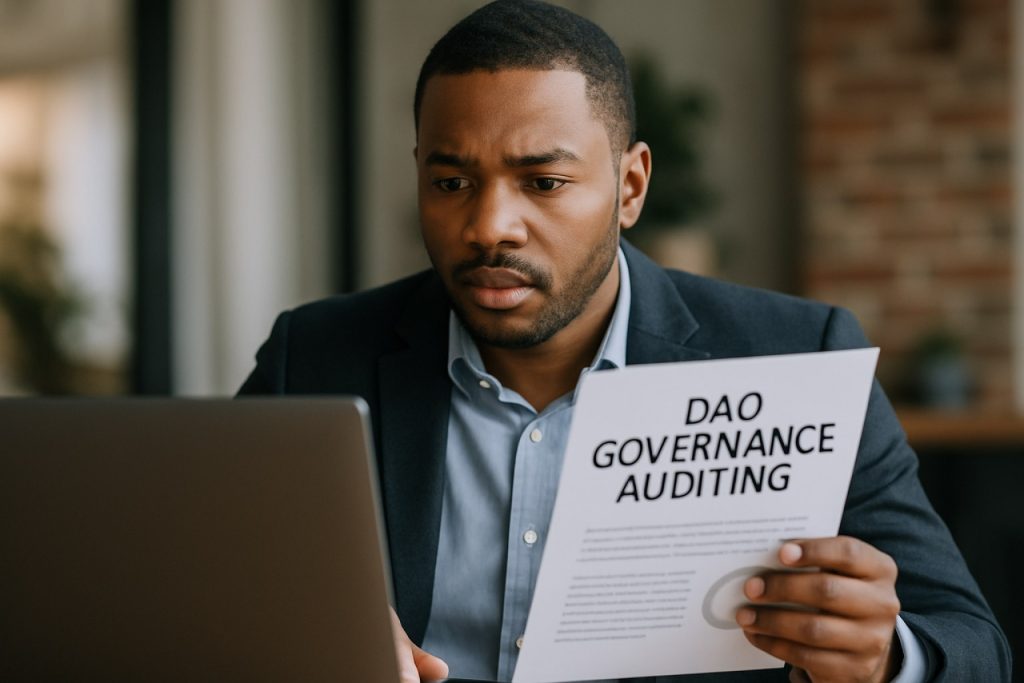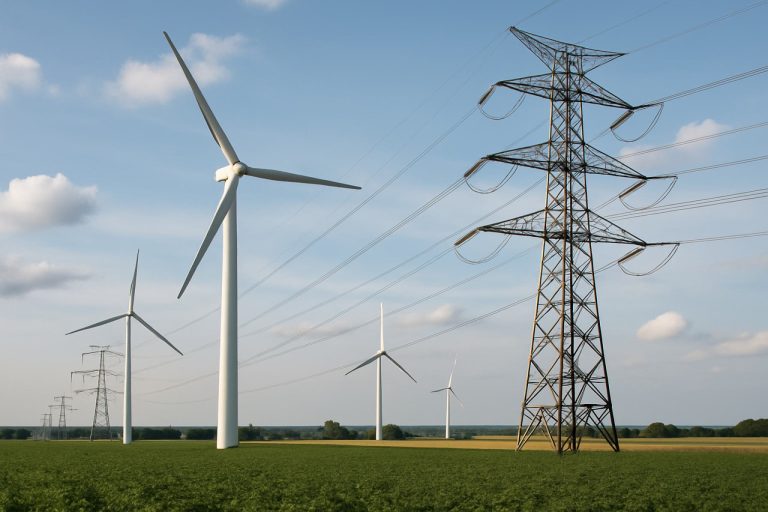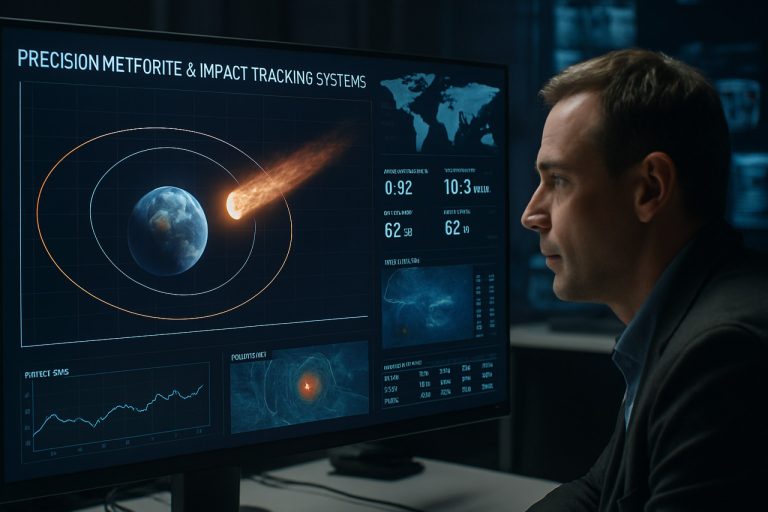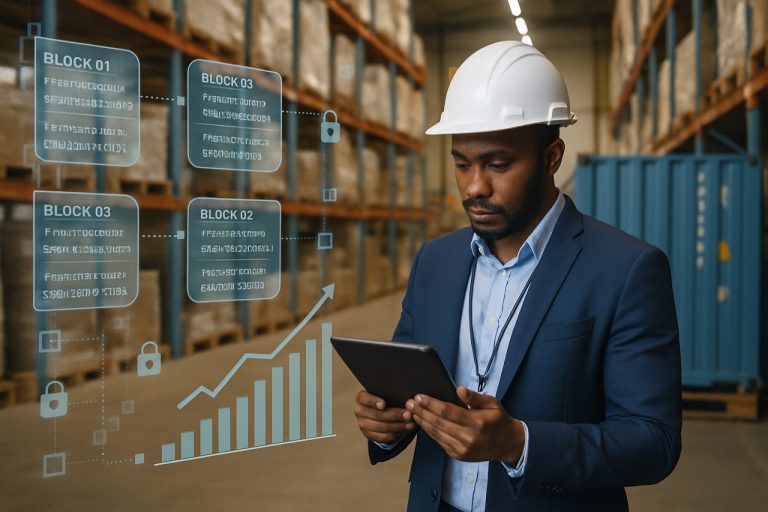
Decentralized Autonomous Organization (DAO) Governance Auditing in 2025: Unveiling the Next Era of Trust, Security, and Compliance for Blockchain Communities. Explore How Auditing Innovations Will Shape DAO Growth and Resilience Over the Next Five Years.
- Executive Summary: The State of DAO Governance Auditing in 2025
- Market Size, Growth, and Forecasts (2025–2030): Quantifying the DAO Auditing Opportunity
- Key Drivers: Regulatory Pressures, Security Breaches, and Community Demands
- Core Technologies: Smart Contract Auditing, Automated Compliance, and AI-Driven Analytics
- Leading Players and Ecosystem Overview (e.g., OpenZeppelin, ConsenSys, Aragon)
- Emerging Standards and Best Practices (e.g., Ethereum.org, DAOstack.io)
- Case Studies: Successful DAO Audits and Lessons Learned
- Challenges: Scalability, Interoperability, and Evolving Attack Vectors
- Future Outlook: Innovations, Market Consolidation, and the Road to Autonomous Compliance
- Strategic Recommendations for Stakeholders: Auditors, DAOs, and Regulators
- Sources & References
Executive Summary: The State of DAO Governance Auditing in 2025
In 2025, the landscape of Decentralized Autonomous Organization (DAO) governance auditing is rapidly maturing, driven by the increasing adoption of DAOs across decentralized finance (DeFi), digital art, gaming, and supply chain sectors. As DAOs manage billions in digital assets and coordinate complex decision-making processes, the need for robust governance auditing has become paramount. This year, the industry is witnessing a shift from ad hoc, code-centric audits to comprehensive frameworks that scrutinize both smart contract security and the integrity of governance mechanisms.
Leading blockchain platforms such as Ethereum Foundation and Polygon Labs continue to host the majority of DAOs, with their ecosystems supporting a diverse array of governance models. In response, specialized auditing firms and protocol-native security teams are developing new methodologies to assess voting systems, proposal execution, treasury management, and the resilience of on-chain governance against manipulation or collusion. Notably, organizations like Aragon Association and Gnosis are pioneering open-source governance frameworks and tools that facilitate transparent, auditable decision-making processes.
Recent high-profile governance failures and exploits—such as the 2024 attack on a major DeFi DAO’s treasury—have underscored the risks of inadequate governance controls. In response, DAOs are increasingly commissioning third-party audits not only of their smart contracts but also of their governance logic, including voting power distribution, quorum thresholds, and emergency procedures. Firms like OpenZeppelin and ConsenSys are expanding their audit offerings to include governance-specific assessments, while new entrants are emerging to provide continuous, real-time monitoring of DAO operations.
Regulatory attention is also intensifying. In 2025, several jurisdictions are exploring or implementing guidelines for DAO transparency and accountability, prompting DAOs to adopt more rigorous audit standards. Industry bodies such as the Ethereum Foundation and Aragon Association are collaborating on best practices and open audit standards to foster trust and interoperability.
Looking ahead, the outlook for DAO governance auditing is one of continued innovation and professionalization. The next few years are expected to see the integration of AI-driven analytics, automated compliance checks, and cross-chain governance audits. As DAOs become foundational to Web3 infrastructure, robust governance auditing will be critical to ensuring their security, legitimacy, and long-term sustainability.
Market Size, Growth, and Forecasts (2025–2030): Quantifying the DAO Auditing Opportunity
The market for Decentralized Autonomous Organization (DAO) governance auditing is poised for significant expansion between 2025 and 2030, driven by the rapid proliferation of DAOs and the increasing complexity of their governance mechanisms. As of early 2025, there are over 20,000 active DAOs globally, with a combined treasury value exceeding $40 billion, according to data aggregated from leading blockchain analytics platforms and DAO registries. This surge in DAO activity has created a parallel demand for robust governance auditing services, as stakeholders seek to ensure transparency, security, and regulatory compliance within decentralized frameworks.
Key players in the blockchain security and auditing sector, such as Consensys, Trail of Bits, and OpenZeppelin, have expanded their service offerings to include specialized DAO governance audits. These audits typically assess smart contract code, voting mechanisms, treasury management protocols, and the overall resilience of governance frameworks against manipulation or collusion. OpenZeppelin, for example, has reported a marked increase in DAO-related audit requests since 2023, reflecting the sector’s growing recognition of governance vulnerabilities as a critical risk vector.
The market size for DAO governance auditing is estimated to reach approximately $500 million in annual revenue by the end of 2025, with compound annual growth rates (CAGR) projected between 30% and 40% through 2030. This growth trajectory is underpinned by several factors:
- Expansion of DAO use cases beyond DeFi into areas such as gaming, social networks, and supply chain management, each requiring tailored governance models and audit approaches.
- Emergence of regulatory frameworks in jurisdictions like the European Union and Singapore, which are beginning to mandate independent governance audits for DAOs operating at scale.
- Technological advancements in automated auditing tools and AI-driven governance analytics, spearheaded by firms like Consensys, which are reducing audit costs and increasing accessibility for smaller DAOs.
Looking ahead, the DAO governance auditing market is expected to become increasingly competitive, with new entrants leveraging open-source frameworks and decentralized audit networks. Strategic partnerships between audit firms and DAO infrastructure providers are anticipated to further accelerate market growth. As DAOs continue to amass larger treasuries and attract mainstream institutional participation, the demand for comprehensive, transparent, and continuous governance auditing will likely become a standard requirement, cementing the sector’s long-term outlook as a cornerstone of decentralized ecosystem integrity.
Key Drivers: Regulatory Pressures, Security Breaches, and Community Demands
The landscape of Decentralized Autonomous Organization (DAO) governance auditing in 2025 is being shaped by a confluence of regulatory pressures, high-profile security breaches, and evolving community demands. These key drivers are accelerating the adoption of robust auditing practices and reshaping the standards for transparency and accountability within the DAO ecosystem.
Regulatory Pressures: As DAOs continue to proliferate and manage increasingly significant pools of digital assets, global regulators are intensifying their scrutiny. In 2024 and 2025, jurisdictions such as the European Union and the United States have signaled intentions to clarify the legal status of DAOs, focusing on anti-money laundering (AML), know-your-customer (KYC), and governance standards. Regulatory bodies are pushing for greater transparency in DAO operations, including the requirement for regular, independent governance audits. This is prompting DAOs to adopt more formalized auditing frameworks and to engage with established blockchain security firms to ensure compliance. For example, Consensys, a leading Ethereum software company, has expanded its auditing services to address these emerging regulatory requirements, working with DAOs to implement best practices in governance and risk management.
Security Breaches: The DAO sector has witnessed several high-profile security incidents in recent years, including smart contract exploits and governance attacks that have resulted in substantial financial losses. In 2024, notable breaches underscored vulnerabilities in both code and governance mechanisms, prompting a surge in demand for comprehensive audits that go beyond technical code review to include governance process evaluation. Firms such as Trail of Bits and OpenZeppelin have responded by offering specialized DAO governance audit services, focusing on voting mechanisms, proposal processes, and treasury management. These services are increasingly seen as essential for DAOs seeking to maintain user trust and safeguard their treasuries.
Community Demands: The decentralized ethos of DAOs places significant power in the hands of token holders and community members, who are demanding greater transparency and accountability from DAO leadership. In 2025, there is a growing expectation for DAOs to publish regular, third-party audit reports and to implement real-time monitoring tools that allow community members to track governance activities. Platforms like Snapshot are integrating audit transparency features, enabling communities to verify the integrity of governance processes. This trend is fostering a culture of continuous improvement and participatory oversight, with DAOs increasingly adopting open-source audit frameworks and engaging their communities in the auditing process.
Looking ahead, the interplay of regulatory, security, and community drivers is expected to further professionalize DAO governance auditing. As DAOs manage larger treasuries and play more prominent roles in decentralized finance and Web3, the demand for rigorous, transparent, and community-driven audit practices will only intensify.
Core Technologies: Smart Contract Auditing, Automated Compliance, and AI-Driven Analytics
The rapid evolution of Decentralized Autonomous Organizations (DAOs) has intensified the need for robust governance auditing, with core technologies such as smart contract auditing, automated compliance, and AI-driven analytics playing pivotal roles in 2025 and beyond. As DAOs increasingly manage significant treasuries and complex decision-making processes, the integrity and transparency of their governance mechanisms are under heightened scrutiny.
Smart contract auditing remains foundational to DAO governance. In 2025, leading blockchain security firms are leveraging advanced formal verification and automated vulnerability detection to assess the logic and security of governance contracts. Companies like ConsenSys and Trail of Bits have expanded their auditing services to include continuous monitoring, not just pre-deployment reviews. This shift is driven by the dynamic nature of DAO upgrades and proposals, which can introduce new risks post-launch. The adoption of on-chain monitoring tools, such as those developed by OpenZeppelin, enables real-time detection of suspicious governance activity, further strengthening DAO resilience.
Automated compliance solutions are also gaining traction, particularly as DAOs face increasing regulatory attention in jurisdictions worldwide. In 2025, compliance automation platforms are integrating with DAO frameworks to enforce rules related to anti-money laundering (AML), know-your-customer (KYC), and voting rights. For example, Chainalysis provides transaction monitoring and risk assessment tools that DAOs can embed into their governance workflows, ensuring that proposals and treasury movements adhere to evolving legal standards. This trend is expected to accelerate as more regulatory bodies clarify their stance on DAO operations and liabilities.
AI-driven analytics are transforming how DAOs audit and optimize their governance. Machine learning models are being deployed to analyze voting patterns, detect collusion, and forecast the impact of proposals. In 2025, platforms like DeepDAO aggregate and analyze governance data across hundreds of DAOs, offering insights into participation rates, delegate influence, and proposal outcomes. These analytics empower DAO members to make informed decisions and identify governance weaknesses before they escalate into crises.
Looking ahead, the convergence of these core technologies is expected to set new standards for DAO governance auditing. As DAOs continue to proliferate and diversify, the demand for integrated, automated, and intelligent auditing solutions will only grow, shaping a more secure and accountable decentralized ecosystem.
Leading Players and Ecosystem Overview (e.g., OpenZeppelin, ConsenSys, Aragon)
The landscape of Decentralized Autonomous Organization (DAO) governance auditing in 2025 is shaped by a dynamic ecosystem of specialized security firms, protocol developers, and open-source communities. As DAOs continue to proliferate across DeFi, gaming, and social coordination, the need for robust governance auditing has intensified, with leading players emerging to address the unique risks and complexities of on-chain decision-making.
OpenZeppelin remains a cornerstone in DAO governance auditing, leveraging its extensive experience in smart contract security. The company’s Defender platform and audit services are widely adopted by DAOs to automate governance workflows, monitor proposals, and enforce security best practices. OpenZeppelin’s open-source libraries and audit reports are considered industry standards, and the firm collaborates with major protocols to identify vulnerabilities in governance logic and voting mechanisms (OpenZeppelin).
ConsenSys, a global blockchain technology company, plays a pivotal role through its suite of Ethereum-based tools and security services. Its Diligence division provides comprehensive audits for DAO governance contracts, focusing on both technical vulnerabilities and economic attack vectors. ConsenSys also contributes to the development of governance frameworks and standards, supporting DAOs in implementing secure upgradeability and transparent voting systems (ConsenSys).
Aragon is a leading DAO infrastructure provider, offering modular governance frameworks and on-chain auditing tools. The Aragon OSx platform enables DAOs to customize governance modules, while its security team conducts regular audits and publishes findings to the community. Aragon’s emphasis on composability and transparency has made it a preferred choice for new DAOs seeking both flexibility and security (Aragon Association).
Other notable contributors include CertiK, which applies formal verification and AI-driven monitoring to DAO governance contracts, and Trail of Bits, known for its rigorous code reviews and research into governance attack surfaces. The Ethereum Foundation continues to support ecosystem-wide security initiatives, funding research and open-source tooling for DAO governance auditing (CertiK, Trail of Bits, Ethereum Foundation).
Looking ahead, the DAO governance auditing ecosystem is expected to evolve rapidly, with increased automation, real-time monitoring, and cross-chain interoperability. As DAOs experiment with novel governance models and scale to manage billions in assets, collaboration among these leading players will be critical to ensuring the resilience and trustworthiness of decentralized governance.
Emerging Standards and Best Practices (e.g., Ethereum.org, DAOstack.io)
The rapid proliferation of Decentralized Autonomous Organizations (DAOs) has intensified the need for robust governance auditing standards and best practices. As of 2025, the DAO ecosystem is witnessing a concerted push towards formalizing frameworks that ensure transparency, accountability, and resilience against governance attacks. This evolution is being shaped by both grassroots initiatives and leading protocol developers.
A central reference point for DAO governance standards remains Ethereum Foundation, which continues to publish open-source resources and guidelines for DAO creation, operation, and security. In 2024 and 2025, Ethereum’s community-driven documentation has increasingly emphasized the importance of on-chain governance audits, including the review of smart contract upgradeability, voting mechanisms, and treasury management. The Ethereum ecosystem’s focus on composability and interoperability has also led to the emergence of cross-DAO audit standards, aiming to facilitate secure interactions between multiple DAOs.
Another influential player, DAOstack, has been instrumental in developing modular governance frameworks and tools for DAO management. DAOstack’s “Arc” framework, widely adopted by DAOs for its flexibility, has incorporated auditability features such as transparent proposal histories and verifiable voting records. In 2025, DAOstack is collaborating with other protocol developers to standardize audit trails and integrate automated anomaly detection, further strengthening governance integrity.
Emerging best practices in DAO governance auditing now include regular third-party code reviews, real-time monitoring of governance actions, and the use of formal verification tools. Leading DAOs are increasingly publishing public audit reports and adopting “governance scorecards” to benchmark their processes against industry standards. The adoption of open frameworks such as OpenZeppelin’s contracts and audit methodologies is becoming commonplace, with OpenZeppelin itself providing security audits and governance consulting to major DAOs.
- Standardization efforts are underway to define minimum audit requirements for DAOs, with working groups forming under the Ethereum Foundation and other protocol alliances.
- Automated governance monitoring tools, leveraging AI and on-chain analytics, are being piloted to detect suspicious voting patterns and treasury movements in real time.
- Interoperability between DAO frameworks (e.g., DAOstack, Aragon, Moloch) is driving the need for shared audit standards and cross-platform best practices.
Looking ahead, the DAO sector is expected to see further convergence around open, verifiable governance audit standards, with increased participation from both protocol developers and independent security organizations. This trend is likely to be reinforced by regulatory interest and the growing scale of assets managed by DAOs, making governance auditing a foundational pillar of the decentralized economy.
Case Studies: Successful DAO Audits and Lessons Learned
In recent years, the rapid proliferation of Decentralized Autonomous Organizations (DAOs) has underscored the critical importance of robust governance auditing. As DAOs manage increasingly significant treasuries and complex decision-making processes, several high-profile audits have set benchmarks for best practices and highlighted key lessons for the sector.
One of the most notable case studies is the 2023 audit of Aragon Association, a leading DAO infrastructure provider. Aragon’s governance framework underwent a comprehensive audit to address vulnerabilities in proposal execution and voting mechanisms. The audit, conducted in collaboration with multiple independent security firms, identified and remediated issues related to vote manipulation and smart contract upgradability. As a result, Aragon implemented multi-signature controls and real-time monitoring, significantly reducing the risk of governance attacks. This case demonstrated the necessity of continuous, rather than one-off, governance audits for DAOs with evolving codebases and governance models.
Another instructive example is the 2024 audit of GnosisDAO, which manages a substantial treasury and supports decentralized prediction markets. GnosisDAO’s audit focused on the transparency and integrity of its proposal process. The audit team scrutinized the DAO’s off-chain and on-chain voting systems, ensuring that all governance actions were verifiable and tamper-resistant. The findings led to the adoption of cryptographic proofs for vote tallying and the introduction of a public audit trail for all governance decisions. This case highlighted the importance of end-to-end verifiability and transparency in DAO governance.
A further case is the 2024 review of MakerDAO, one of the largest and most influential DAOs in the decentralized finance (DeFi) sector. MakerDAO’s audit was notable for its scope, encompassing both technical and procedural aspects of governance. The audit identified risks associated with delegate voting power concentration and recommended the implementation of quadratic voting and periodic delegate rotation. MakerDAO’s subsequent reforms have been credited with improving voter participation and reducing the risk of governance capture.
These case studies collectively reveal several key lessons for DAO governance auditing in 2025 and beyond:
- Continuous, iterative audits are essential as DAOs evolve and governance mechanisms become more complex.
- Transparency and verifiability of voting and proposal processes are critical to maintaining trust and legitimacy.
- Mitigating risks such as vote manipulation, power concentration, and smart contract vulnerabilities requires both technical and procedural safeguards.
Looking ahead, the sector is expected to see increased adoption of automated, real-time auditing tools and greater collaboration between DAOs and independent security organizations. As DAOs continue to grow in scale and influence, robust governance auditing will remain a cornerstone of their resilience and legitimacy.
Challenges: Scalability, Interoperability, and Evolving Attack Vectors
Decentralized Autonomous Organizations (DAOs) have rapidly expanded in both scale and complexity, with governance frameworks now managing billions in digital assets and coordinating thousands of stakeholders. As of 2025, the auditing of DAO governance faces significant challenges, particularly in the areas of scalability, interoperability, and the emergence of new attack vectors.
Scalability remains a core concern as DAOs grow. The number of proposals, votes, and smart contract interactions has increased exponentially, straining both on-chain and off-chain auditing tools. Traditional manual review processes are insufficient for the volume and speed required. Automated auditing platforms, such as those developed by ConsenSys and OpenZeppelin, have become essential, but even these face bottlenecks when processing high-throughput governance activity. The challenge is compounded by the need to audit not just code, but also the economic and social logic embedded in governance mechanisms.
Interoperability is another pressing issue. Many DAOs now operate across multiple blockchains, leveraging cross-chain bridges and Layer 2 solutions to reduce costs and increase reach. This multi-chain environment complicates governance auditing, as auditors must track assets, votes, and proposals across disparate protocols and standards. Efforts by organizations like Polygon Labs and Offchain Labs (Arbitrum) to standardize cross-chain communication are ongoing, but the lack of universal frameworks means that vulnerabilities can arise at the intersection of chains, where audit coverage is weakest.
Evolving attack vectors present a dynamic threat landscape. In 2024 and 2025, several high-profile DAO governance attacks exploited both technical and social vulnerabilities. For example, governance attacks leveraging flash loans or manipulating voting power through token lending have exposed weaknesses in snapshot-based voting and quorum mechanisms. Additionally, social engineering attacks targeting DAO participants and delegates have increased, as seen in incidents reported by Gnosis, a major DAO infrastructure provider. The rise of AI-driven bots capable of exploiting governance loopholes further complicates the auditing process, requiring continuous updates to both technical and procedural controls.
Looking ahead, the outlook for DAO governance auditing is one of rapid evolution. The sector is expected to see increased adoption of real-time, AI-assisted auditing tools and greater collaboration between protocol developers and audit firms. However, the pace of innovation in DAO structures and the persistent emergence of new attack vectors mean that scalability, interoperability, and security will remain at the forefront of governance auditing challenges through 2025 and beyond.
Future Outlook: Innovations, Market Consolidation, and the Road to Autonomous Compliance
The landscape of Decentralized Autonomous Organization (DAO) governance auditing is poised for significant transformation in 2025 and the years ahead, driven by technological innovation, regulatory evolution, and market consolidation. As DAOs continue to proliferate across decentralized finance (DeFi), gaming, and social coordination, the need for robust, transparent, and automated governance auditing has become paramount.
One of the most notable trends is the integration of artificial intelligence (AI) and machine learning into DAO auditing tools. These technologies are being leveraged to automate the detection of governance anomalies, voting manipulation, and treasury mismanagement. For example, leading blockchain infrastructure providers such as Consensys are investing in AI-driven analytics to enhance the security and transparency of DAO operations. Similarly, open-source platforms like Aragon are developing modular governance frameworks that facilitate real-time auditing and compliance monitoring, enabling DAOs to adapt swiftly to evolving regulatory requirements.
Market consolidation is also underway, as established blockchain security firms and protocol developers acquire or partner with specialized DAO auditing startups. This trend is exemplified by the growing collaboration between protocol security leaders such as OpenZeppelin and DAO tooling providers, aiming to offer end-to-end governance risk assessment and mitigation services. The consolidation is expected to result in standardized auditing practices, greater interoperability between DAO platforms, and the emergence of industry-wide benchmarks for governance integrity.
On the regulatory front, 2025 is likely to see increased scrutiny of DAOs by global authorities, particularly in jurisdictions with active digital asset markets. Regulatory bodies are beginning to articulate clearer guidelines for DAO operations, focusing on transparency, accountability, and anti-money laundering (AML) compliance. In response, DAOs are adopting automated compliance modules and on-chain reporting mechanisms, often developed in collaboration with compliance technology firms and blockchain consortia such as the Ethereum Foundation.
Looking ahead, the road to autonomous compliance will be shaped by the convergence of smart contract auditing, real-time governance analytics, and self-enforcing regulatory protocols. The next few years are expected to witness the rise of fully autonomous auditing agents—smart contracts capable of continuously monitoring DAO governance, flagging irregularities, and even executing corrective actions without human intervention. As these innovations mature, the DAO ecosystem will likely achieve higher levels of trust, resilience, and regulatory alignment, paving the way for mainstream adoption and more complex forms of decentralized governance.
Strategic Recommendations for Stakeholders: Auditors, DAOs, and Regulators
As Decentralized Autonomous Organizations (DAOs) continue to proliferate and mature in 2025, the need for robust governance auditing frameworks has become increasingly apparent. The following strategic recommendations are tailored for key stakeholders—auditors, DAOs, and regulators—seeking to enhance the integrity, transparency, and resilience of DAO governance.
- For Auditors: Auditors should prioritize the development and adoption of specialized tools for on-chain governance analysis. This includes leveraging open-source frameworks and smart contract auditing platforms to assess voting mechanisms, proposal execution, and treasury management. Leading blockchain security firms such as ConsenSys and Trail of Bits have expanded their offerings to include DAO-specific governance audits, emphasizing the need for continuous monitoring rather than one-off assessments. Auditors are encouraged to collaborate with protocol developers to co-create standards for transparent reporting and incident disclosure.
- For DAOs: DAOs should implement regular, independent governance audits as a best practice, integrating both technical and procedural reviews. This includes not only smart contract code but also the off-chain processes that influence on-chain decisions. DAOs like Aragon and Gnosis have begun to publish governance transparency reports and open their processes to third-party review, setting a precedent for the sector. Additionally, DAOs should invest in member education around governance risks and mitigation strategies, fostering a culture of proactive risk management.
- For Regulators: Regulatory bodies are increasingly engaging with DAO governance, as evidenced by ongoing consultations in the EU and US. Regulators should focus on establishing clear guidelines for DAO accountability, particularly regarding audit requirements and incident response. Collaboration with industry groups such as the Ethereum Foundation and standards organizations can help ensure that regulatory frameworks are both effective and innovation-friendly. Regulators are also advised to support the development of public registries for audited DAOs, enhancing market transparency and user trust.
Looking ahead, the convergence of automated auditing tools, evolving governance models, and regulatory clarity is expected to drive higher standards across the DAO ecosystem. Stakeholders who proactively adopt and shape these practices will be best positioned to navigate the complex landscape of decentralized governance in the coming years.
Sources & References
- Ethereum Foundation
- Polygon Labs
- Aragon Association
- Gnosis
- OpenZeppelin
- ConsenSys
- Consensys
- Trail of Bits
- Snapshot
- Chainalysis
- DeepDAO
- CertiK
- DAOstack
- Offchain Labs



